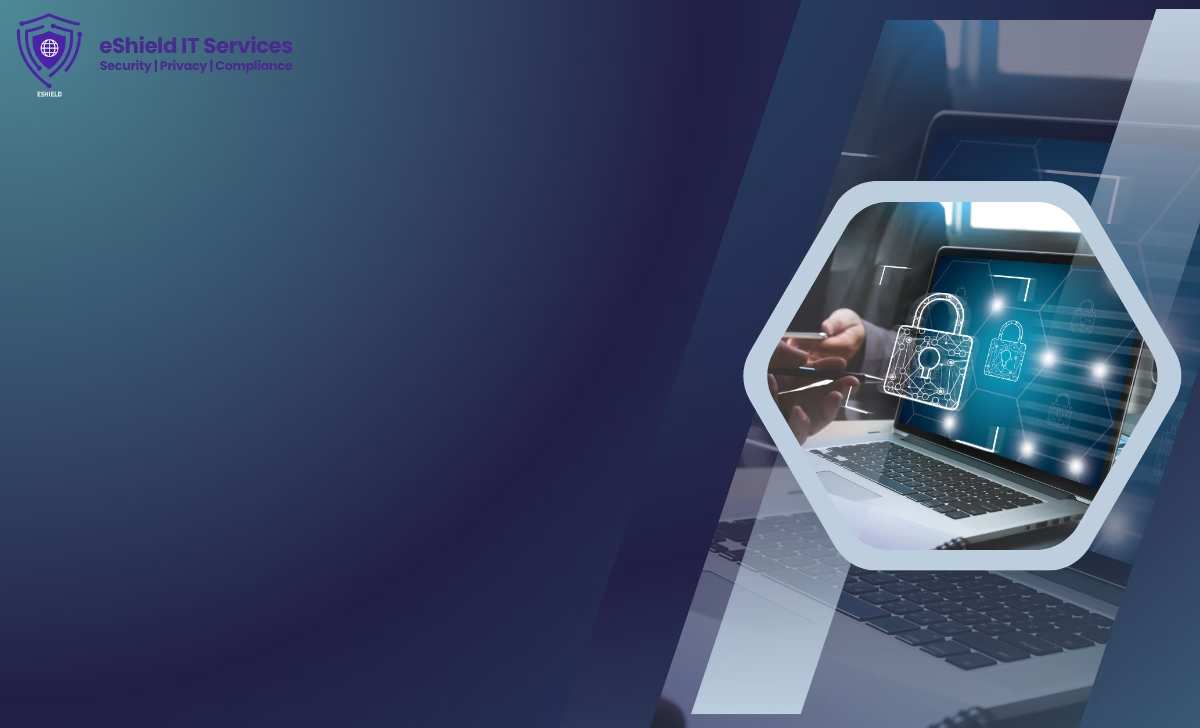Secure payment processing is key in today’s digital world. Online transactions are on the rise. Protecting sensitive cardholder data is now a top priority. PCI DSS is vital for keeping payment processing safe.
The Payment Card Industry Data Security Standard sets guidelines for cardholder data safety. Businesses handling payment card info must follow these rules. This prevents data breaches and keeps customers trusting them. eshielditservices, a cyber security firm in Dubai, aids businesses in meeting PCI DSS compliance standards.
Key Takeaways
- PCI DSS is essential for secure payment processing.
- It protects sensitive cardholder data from breaches.
- eshielditservices helps businesses achieve PCI DSS compliance.
- Compliance is key for keeping customer trust.
- PCI DSS guidelines safeguard cardholder data.
What is PCI DSS and Why It Matters
In the UAE, following PCI DSS is key for safe payment handling and keeping customer trust. PCI DSS, or Payment Card Industry Data Security Standard, is vital for safeguarding sensitive cardholder data.
The Definition and Purpose of PCI DSS
PCI DSS is a set of security rules for companies that handle credit card info. It’s made by the Payment Card Industry Security Standards Council (PCI SSC). It aims to protect cardholder data and stop data breaches. By following Payment Card Industry Data Security Standard, businesses lower the risk of data breaches and keep their customers’ trust.
The Evolution of Payment Security Standards
Payment security standards have grown a lot over time. Payment Card Industry Data Security Standard was a big step towards better security for payment handling. It has been updated many times to fight new threats. Now, it’s a key part of keeping payments safe, always getting better to fight cyber threats.

Consequences of Non-Compliance and Data Breaches
Not following Payment Card Industry Data Security Standard can cause big problems, like huge financial losses and damage to reputation. Data breaches can hurt customer trust, leading to less business. Studies show data breaches can cost a lot, making PCI DSS compliance a smart choice.
| Consequences | Impact |
|---|---|
| Financial Losses | Significant fines and penalties |
| Reputational Damage | Loss of customer trust |
| Business Decline | Decline in customer loyalty |
The 12 Requirements of PCI DSS Compliance
To keep payment processing safe, it’s key to know the 12 PCI DSS compliance rules. These rules help protect cardholder data and keep the network secure.
Building and Maintaining a Secure Network
The first two rules are about having a secure network. This means installing and maintaining a firewall configuration to guard cardholder data. It also means not using vendor-supplied defaults for system passwords and security settings. A secure network is vital for PCI DSS compliance, as it stops unauthorized access to sensitive info.
Protecting Cardholder Data
Rules 3 and 4 stress the need to protect cardholder data. This includes encrypting cardholder data when it’s sent over public networks. It also means storing cardholder data safely. Businesses must not keep sensitive authentication data after it’s been authorized. They should also use strong cryptography to protect cardholder data.
Vulnerability Management and Testing
Rules 5 and 6 talk about vulnerability management. This means using and updating anti-virus software regularly. It also means developing and keeping secure systems and applications. Businesses must identify and address vulnerabilities through regular testing and risk assessments.
Access Control and Network Monitoring
The last rules focus on access control and network monitoring. This includes limiting access to cardholder data based on need. It also means identifying and authenticating access to system components. Regularly monitoring and testing networks is also important. By doing these things, businesses can keep their payment processing systems safe and follow Payment Card Industry Data Security Standard rules.
Implementing PCI DSS in Your Business
PCI DSS implementation is key to protecting payment info. First, understand your merchant level and its needs.
Determining Your Merchant Level and Compliance Requirements
Start by figuring out your merchant level based on transactions. There are four levels, with Level 1 being the top. Knowing your level is key for following the right rules.
Step-by-Step Implementation Process
The process has several important steps:
Initial Assessment and Gap Analysis
Check your current security against Payment Card Industry Data Security Standard to find gaps.
Remediation and Security Measures Implementation
Fix the gaps with the right security measures.
Documentation and Policy Development
Keep detailed records of your security policies.
By following these steps, you can fully implement Payment Card Industry Data Security Standard.
Tools and Resources for Compliance Management
Many tools and resources are out there to help with PCI DSS. eshielditservices offers some. They help with scans, tests, and keeping up with compliance.
Maintaining Ongoing Compliance
Staying compliant means regular checks and policy updates. Keep up with Payment Card Industry Data Security Standard changes to adjust your strategy.
Here’s a table to show the compliance needs and merchant levels:
| Merchant Level | Annual Transactions | Validation Requirements |
|---|---|---|
| Level 1 | More than 6 million | Annual On-Site Audit, Quarterly Scans |
| Level 2 | 1 to 6 million | Annual Self-Assessment, Quarterly Scans |
| Level 3 | 20,000 to 1 million | Annual Self-Assessment, Quarterly Scans |
| Level 4 | Fewer than 20,000 | Annual Self-Assessment |
PCI DSS Compliance in the UAE Market
Digital payments are growing fast in the UAE. Businesses must focus on PCI DSS compliance to keep customer data safe. The UAE’s e-commerce and digital transactions make it key to know Payment Card Industry Data Security Standard well.
UAE-Specific Regulations and Requirements
The UAE has set rules to secure payment processing. Companies must follow PCI DSS to avoid big fines and damage to their reputation. New rules say all merchants and service providers handling card data must follow PCI DSS.
“Following PCI DSS is more than a rule; it’s vital for protecting customer data and keeping trust in digital payments,” said a cyber security expert.
Common Compliance Challenges for Dubai Businesses
Dubai companies struggle with PCI DSS compliance. They face issues like not knowing enough, lacking resources, and finding it hard to set up security. eshielditservices helps by providing specific compliance services.
How eshielditservices Supports UAE Companies
eshielditservices helps UAE companies with PCI DSS compliance. They offer:
Specialized Compliance Services for Dubai Businesses
Custom solutions for Dubai companies to meet Payment Card Industry Data Security Standard needs.
Security Assessment and Implementation Support
Help with setting up strong security to protect card data.
Ongoing Monitoring and Maintenance Solutions
Keeping an eye on things to make sure compliance and security stay up to date.
Success Stories: PCI DSS Implementation in the UAE
Many UAE companies have achieved PCI DSS compliance with eshielditservices. Their success stories show how effective their services are in boosting cyber security and protecting customer data.
“Working with eshielditservices was key to our PCI DSS compliance. Their knowledge and support made it easy and quick.”
A satisfied client
Conclusion: Securing Your Payment Processing Future
Businesses in the UAE are growing online, making secure payment systems key. PCI DSS compliance is vital to protect cardholder data and keep customers trusting you.
Following the 12 PCI DSS requirements can lower data breach risks. eshielditservices helps companies meet these standards, guiding them every step of the way.
Keeping security high is important to stay safe from new threats and protect your reputation. By focusing on PCI DSS, UAE businesses can ensure a secure payment future and keep customer trust.
With the right help, businesses can handle PCI DSS compliance easily. This lets them focus on providing secure payment experiences that grow their business and keep customers loyal.
FAQ
PCI DSS compliance means following the Payment Card Industry Data Security Standard. This standard ensures companies handling credit card info keep it safe. It protects cardholder data.
In Dubai, PCI DSS compliance is key. It guards sensitive cardholder data and lowers breach risks. It also keeps customer trust high. Not following it can cause big financial losses and harm a company’s reputation.
eshielditservices, a cyber security firm in Dubai, aids in PCI DSS compliance. They provide security assessments, implementation help, and ongoing monitoring. This ensures businesses meet the standards.
Not following PCI DSS can lead to big financial losses and damage to reputation. It can also result in legal issues. Data breaches harm customer trust and loyalty.
Your merchant level is based on your annual transaction volume. The PCI Security Standards Council offers guidelines. These help figure out your level and what you need to do to comply.
PCI DSS compliance has 12 key requirements. These include securing networks, protecting cardholder data, managing vulnerabilities, and controlling access. They also cover network monitoring and more.
The timing of PCI DSS assessments varies by merchant level. Generally, they’re needed annually. Quarterly network scans and constant monitoring are also required.
Yes, eshielditservices offers ongoing monitoring and maintenance. They help businesses stay PCI DSS compliant and protect against new threats.


